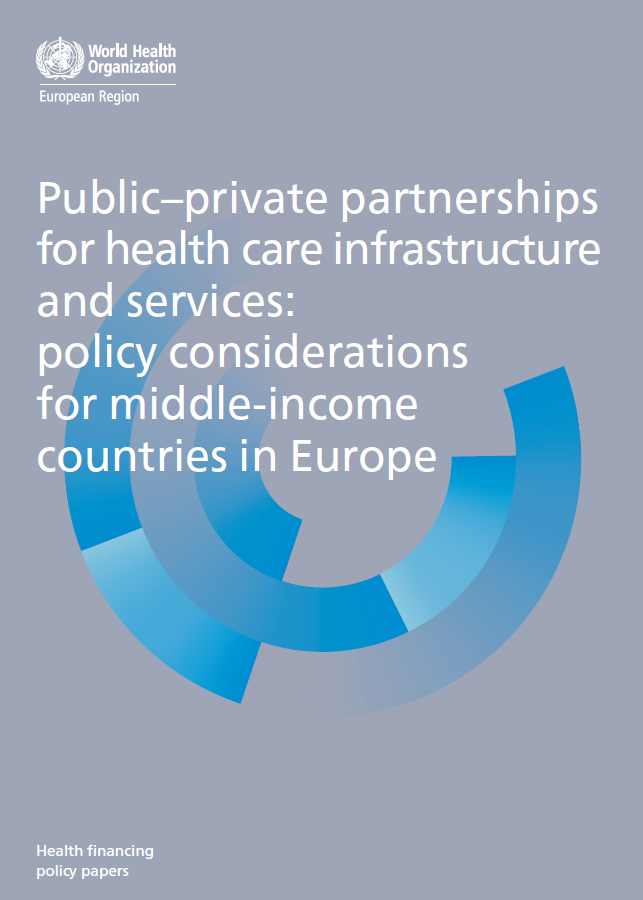NCD Alliance
NCD Alliance Advocacy Briefing for WHO EB158
Briefs & Fact Sheets
29 Jan 2026
WHO Regional Office for Europe
31 Mar 2023

There is increasing interest in using public–private partnerships (PPPs) to mobilize funds for and enable reforms of health systems. This report provides a review of PPP models currently being used or considered in the WHO European Region. It finds that, in comparison with other models of engagement with the private sector, PPPs have led to good outcomes in terms of post-contractual cost-certainty, but also higher transaction and financing costs. Securing value for money means selecting the right projects, reflecting their degree of priority for the health system as a whole (allocative efficiency) and implementing these effectively (technical efficiency). PPPs should be used only when they represent the most cost–effective solution compared to other procurement options and where the capacities needed to plan, design, negotiate and monitor long-term and complex transactions are readily available. To minimize fiscal risks, ensure the integrity of procurement processes and safeguard the public interest, robust institutional checks and balances need to be in place.